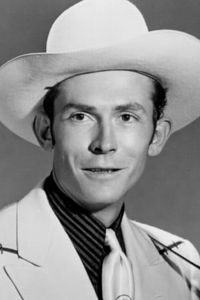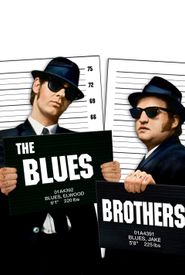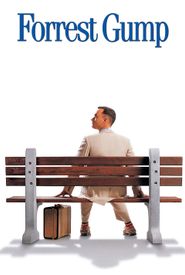Hank Williams, a legendary country music icon, was born in September 1923, within a small, rural Alabama farming community, situated approximately 70 miles south of the state capital, Montgomery. His father, a dedicated railroad engineer, was a casualty of the devastating effects of shell shock, a condition he developed as a result of his harrowing experiences on the battlefields of France during World War I. Consequently, his father spent numerous years receiving treatment at veterans' hospitals, leaving Hank and his family to face the challenges of his absence.
Growing up, Hank's mother, Lillian Skipper Williams, played a pivotal role in nurturing his musical talents. As the organist at their local church, she instilled in Hank a deep appreciation for music from a young age. In fact, she began teaching him gospel songs when he was just six years old, laying the foundation for his future success in the world of country music.
As Hank Williams Sr. entered his pre-teen years, he embarked on a self-taught journey to master the guitar, largely guided by observing skilled guitarists. This early exposure to the instrument laid the foundation for his future musical endeavors.
As he transitioned into his teenage years, Hank's musical tastes shifted towards country music, which he discovered through family radio broadcasts. He would often sing along to these country tunes, developing his vocal skills and familiarizing himself with the genre.
In addition to his country influences, Hank also developed an appreciation for the blues, thanks to his friendship with a street musician named Tee-Tot (Rufe Payne),who was a black musician. Tee-Tot's expertise in blues chords and riffs significantly impacted Hank's musical style, as he incorporated these elements into his own playing.
At the tender age of 14, Hank Williams Sr. took the bold step of forming his own band, performing at various local gatherings and events. These early performances allowed him to hone his skills and gain valuable stage experience.
One notable highlight from this period was Hank's victory in a local talent contest, where he impressed the judges with his original composition, "WPA Blues." This achievement not only boosted his confidence but also marked a significant milestone in his musical journey.
At the tender age of seventeen, Hank embarked on a remarkable journey by assembling a group known as 'Hank Williams' Original Drifting Cowboys', a venture that would ultimately lead to their successful audition with the esteemed manager of WSFS Radio in Montgomery. This pivotal moment marked the beginning of their regular appearances on the airwaves, allowing Hank to hone his craft and share his music with a wider audience.
In the midst of his burgeoning music career, Hank crossed paths with his first wife, the enigmatic and strong-willed Audrey Williams, during a traveling medicine show. Their chance encounter would blossom into a lifelong partnership, culminating in their marriage in December 1944 at an Alabama gas station.
Audrey and Hank embarked on a journey to Nashville in 1946, with the ultimate goal of securing a music publishing contract with the esteemed Fred Rose, the visionary head of the Acuff-Rose publishing firm. As they arrived, Fred Rose presented Hank with a challenge, requesting that he compose a song on the spot. Hank rose to the occasion, crafting the timeless classic "Mansion on the Hill". This remarkable feat earned him a publishing contract with Acuff-Rose, a testament to his burgeoning talent.
As the late 1940s unfolded, Hank reached the pinnacle of his career, with MGM Records extending an offer for a recording contract. This marked the beginning of a new era, as Hank became a regular fixture on the popular "Louisiana Hayride" radio show, broadcast from Shreveport, Louisiana, and hosted by KWKH.
The pivotal year of 1949 marked a significant turning point in the illustrious career of the legendary Hank Williams, as it was during this period that his life was forever changed with the arrival of his son, Hank Williams Jr. This momentous occasion was soon followed by a prestigious invitation to join the esteemed Grand Ole Opry, a renowned institution located in the vibrant city of Nashville, Tennessee. On June 11, 1949, Hank Williams made his highly anticipated stage debut before a captivated audience, thus commencing a remarkable period of unparalleled success that would see him rise to the pinnacle of country music stardom. For the subsequent year, from 1949 to 1950, Hank Williams solidified his position as the leading artist in the country music genre, with a string of chart-topping hits that would forever etch his name in the annals of music history. These iconic songs, including the timeless classics "Lovesick Blues," "My Bucket's Got a Hole in It," "Moanin' the Blues," and "Why Don't You Love Me," continue to captivate audiences to this very day, a testament to the enduring legacy of the one and only Hank Williams.
Noted American singer-songwriter Hank Williams, a country music legend, experienced immense success in the early 1950s, with a plethora of chart-topping hits. In 1951, his repertoire boasted the iconic tracks "Hey, Good Lookin'," "Cold, Cold Heart," and "I Can't Help It (If I'm Still in Love with You)," cementing his status as a musical force to be reckoned with.
The following year, 1952, brought even greater triumph, with the release of "Honky Tonk Blues," "Jambalaya," and "I'll Never Get Out of This World Alive." These hits solidified Hank's position as a country music icon, with his unique blend of honky-tonk and traditional country styles captivating audiences nationwide.
Despite his remarkable success, however, Hank's life was marred by his struggles with addiction. A heavy drinker since his teenage years, he often found himself inebriated, leading to unreliable performances and, on occasion, failed to appear for scheduled concerts at all.
Audrey Williams, Hank's first wife, initiated divorce proceedings in 1951, citing the couple's perpetual disputes over his excessive alcohol consumption. This development led to a growing disillusionment among the band members, who began to question Hank's leadership and behavior. As a consequence, the Grand Ole Opry subsequently suspended him from performing live shows.
In October 1952, Hank Williams married his second wife, Billie Jean Jones, a 19-year-old woman who, like Audrey, struggled to shield Hank from the destructive consequences of his own actions. Unfortunately, Billie Jean's efforts were similarly unsuccessful.
The Drifting Cowboys, Hank's backing band, also departed in October 1952, due to the singer's unpredictable and violent mood swings, which made it increasingly difficult for them to continue working together.
As the clock struck midnight on January 1st, 1953, Hank Williams' life came to an abrupt and unexpected end. The country music legend, who was merely 29 years young, succumbed to his untimely demise in the early morning hours while en route to a scheduled performance in Canton, Ohio.




















